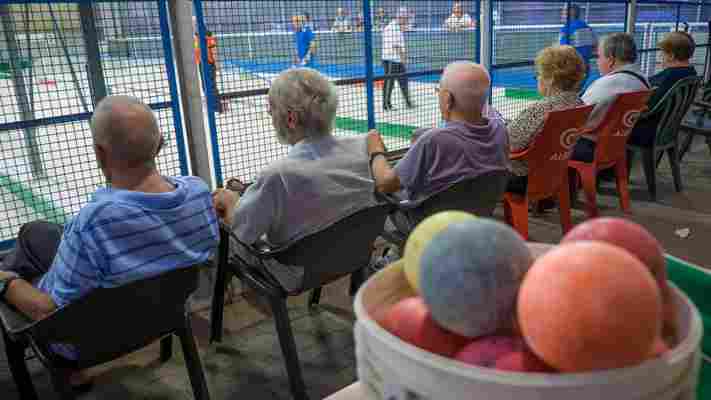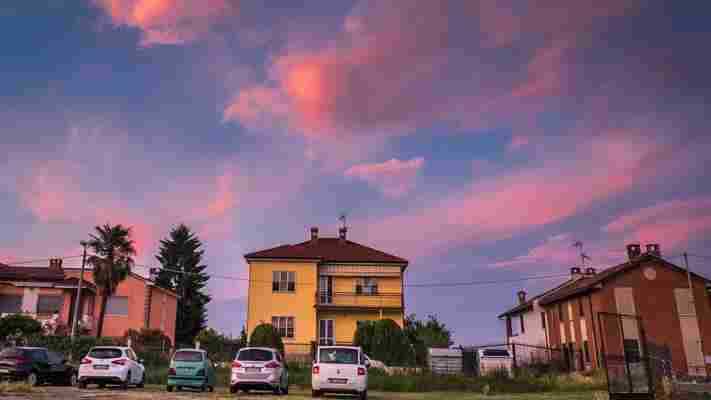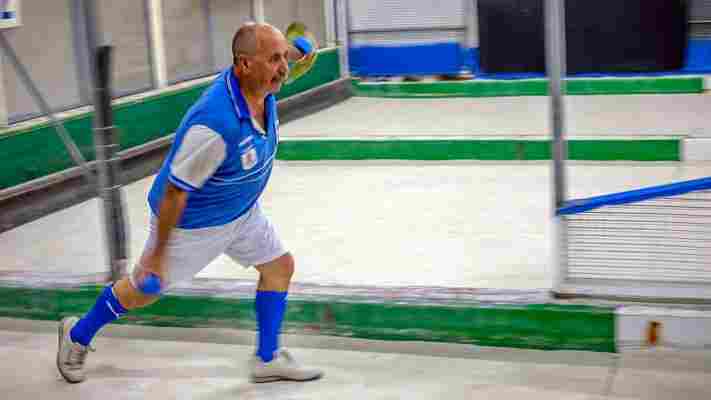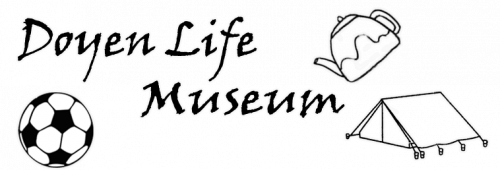Article continues below
“Piia na cadreia e setat su a vardà.” Battista Valenti greeted me, but I didn’t understand a word he was saying. His Italian was harsher than what I’m used to; he stretched his syllables, which rolled off his tongue with a twang.
The energetic, silver-haired 70-year-old was speaking the dialect of Cornale, his native village in southern Lombardy, a region of northern Italy. A week ago, Valenti, a friend of my father, had invited me to Cornale's Centro Sportivo (Sports Centre) to watch a game of bocce, Italy's own version of lawn bowls.
“Trust me,” he said. “Watching a bocce game is like doing anthropological research. We even have our own language.”

Italy’s local dialects are often spoken on the bocce court (Credit: Kit Yeng Chan)
You may also be interested in: • Why Italian sounds so seductive • The revival of Europe’s oldest language • Greece’s disappearing whistled language
Until the mid-20th Century, small Italian villages like Cornale were self-sustaining centres that had everything they needed, from mills to make bread to shops to build and fix bicycles. Each village ‒ including my hometown of Voghera, located 10km south-west of Cornale ‒ also forged its own distinct dialect.
Watching a bocce game is like doing anthropological research
Given the proximity of the towns, Cornale’s dialect is very similar to that of Voghera. And yet I found myself struggling to follow the conversation with Valenti ‒ so much so that I had to lift both hands at the side of my chest, curl my lower lip outwards, and make the flipping movement of the wrists that, in Italian sign language, means ‘I don't understand’.
Valenti laughed and patted me on the shoulder. “You may have travelled all around the world, but not knowing your dialect is a serious crime,” he said in standard Italian.

The small village of Cornale in northern Italy has its own unique dialect (Credit: Kit Yeng Chan)
He pulled back an empty plastic chair and we joined a row of attentive spectators watching a game come to a close. Beyond the metallic net that separated spectators from players, four lanes of powdery grey soil shimmered under the harsh overhead lighting. Half a dozen men in collared monochrome shirts – none of whom appeared to be under the age of 60 – stood before me in the game fields, some pondering the weight of a boccia (bocce ball) in their right hands, others attentively observing their opponents' moves.
They were playing one of Italy's oldest games; bocce originated during the Roman Empire and grew popular during the 13th Century. It wasn’t long until nearly every town had a bocce court. Today, however, the game’s popularity is dwindling.
Not knowing your dialect is a serious crime
Essential bocce dictionary
Terms to know before attending a bocce match in Cornale, Italy
andà sü, to invite the team member to place his ball as close as possible to the small ball, and thus try to score a point.
balâi , the small ball (“pallino”) in the game of bocce.
bucia , ball.
bucia rèsta , nella loc. fà bucia rèsta , to hit and strike an opponent's ball away while managing to stop your own boccia in the place of the former (also called “stop” or trick).
bucià , to bowl in a bocce game.
fà ’r pôont, to score a point.
giügà ai bucc , to play bocce.
giœgh di bucc , bocce field.
piàgh ar pôont , to score a point.
marcà i pôont, to keep the score.
rafà, a particular kind of flying throw technique. The player throws the boccia in the air, aiming to hit the other team's winning ball and strike it away from the balâi.
trà via ar balâi, to start a bocce match by throwing the balâi .
vâins/pèerd la partìa , to win/lose a game.
vardà a giügà ai bucc , to watch a game of bocce.
Now 69 years old, my father has played bocce all his life; he learned to love the game from my grandfather, and when I was a child, he tried to pass the love down to me. When I was about 12, I would follow my father to the bocciodromo ‒ the bar with playing fields found in every Italian town ‒ to meet his friends, middle-aged men with whom I felt I had nothing in common. I would watch the games for a while and then I would make my way to the video game corner. Needless to say, I didn’t inherit my father’s love of bocce, and because this was the only place where I ever came in contact with the Voghera dialect, I never learned to speak it.

Bocce, which originated during the Roman Empire, is one of Italy’s oldest games (Credit: Kit Yeng Chan)
To Valenti, local dialects are a crucial aspect of life in Italy’s small towns. “The dialect, like the game of bocce, was a way to establish our identity,” he said.
For the past five years, the retired English teacher has been helping to create a dictionary of local vocabulary as part of the Alimentiamo la Memoria (Let's Feed the Memory) research project, funded by the village's Tre Fiumi (Three Rivers) Library. Yet Valenti also knows very well that because of globalisation and the influence of mass media, local dialects have been curtailed to places like the bocciodromo, where the generations that grew up without television have gathered for decades.
Yet bocce is not nearly as popular a pastime as it once was. “Young people's needs have changed so much since the olden days,” Valenti said with a hint of nostalgia in his voice. “Sixty years ago, each osteria [local restaurant] had its own bocce fields. That was where we gathered to play during summer evenings and holidays. At the games, one would find entertainment, friends and even pretty girls.”
The referee whistled and Valenti ‒ who was supposed to be keeping score ‒ excused himself, turned on his heels and left me alone to watch the rest of the game.
I observed the players, trying to understand what they were saying. One after the other, they pondered the position of the bocce at the other end of their lane and then leapt forward, tossing their own ball towards their target: the boccino or el balai (the little ball that players need to send their bocce close to in order to score). The men hummed and raised their hands each time one boccia got closer to the boccino than their opponent’s.
“A gh’era no d’andà su! A gh’era da bucià o mat na bucia in fond. Paragia su ciapa al balai u po fa partìa!” one man yelled angrily at his partner, gesticulating wildly with his hands. I got the gist ‒ they were about to lose the game ‒ but I couldn’t understand the details.
“What are they saying?” Desperate, I asked the man next to me for help.
“You don't understand the dialect?” His expression let on that he knew he was asking a rhetorical question. He went on to explain, in Italian: “That man there complained that his companion didn't hit the boccino. If he had, they could have won the game.”
Two fields down to my left, another player was arguing with the referee.
The dialect, like the game of bocce, was a way to establish our identity
“L’è al me ad vaint cintìm! Al vaga anca un orb!” I remembered from my afternoons at the bocciodromo that an ‘orb’ is a blind person. But the rest of the sentence was entirely foreign. My neighbour, once again, translated: “He says that he has scored because his boccia is noticeably closer than the opponent's, and that the referee's mistake is so obvious that even a blind man would see it.”
My neighbour finally introduced himself.
“My name's Armando Frassini, by the way. Don't worry: I know well that youngsters like you don't understand the dialect. That's why only us elders ‒ I am 77 ‒ speak it.”
To score, players must toss their ball so that it lands closest to the boccino (Credit: MCT/Getty Images)
By using the dialect almost like a secret code, small-town bocce players make the game's culture all the more exclusive. “In the bocciodromo, we want to keep the old dialect alive for those who understand and appreciate it,” Frassini said.
However, even these dialect-lovers are dwindling in numbers. “In Voghera alone, the number of players registered with Italian Bocce Federation is a mere 300, compared to the 1,200-odd registered in the 1980s,” explained Valenti, who had returned from his score-keeping duties. “Regardless of poor trans-generational exchange, bocce will keep being supported by the federation. But I have my doubts about who will take care of the dialect.”
For the moment, besides Valenti and Frassini, all the other elder bocce players and spectators seemed oblivious to the bleak future of their language. One man hummed approvingly as his partner’s boccia came dangerously close to the boccino, while the opposing team began an animated debate over what I could only assume was their comeback strategy. But, of course, I didn’t understand what they were saying.
Lost in Translation is a BBC Travel series exploring encounters with languages and how they are reflected in a place, people and culture.
Join over three million BBC Travel fans by liking us on Facebook , or follow us on Twitter and Instagram .
If you liked this story, sign up for the weekly bbc.com features newsletter called "If You Only Read 6 Things This Week". A handpicked selection of stories from BBC Future, Earth, Culture, Capital and Travel, delivered to your inbox every Friday.
